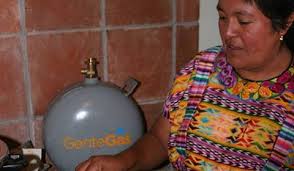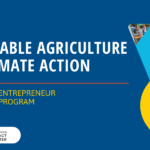By: Christina Espinosa, GenteGas S.A.

The first human to have her exposure to cooking emissions measured was in 1981. Since then a steady amount of research has been conducted to quantify the health risk to cooking with solid fuels. In response, hundreds of new äóěimprovedäóť biomass cookstove designs were developed and marketed to reduce health risks. Many of the stoves met a 90% or more reduction in emissions; however, the exposure-response curves showed that improved biomass stoves still left the majority of the health burden untouched. Currently, no biomass stove in the world is clean enough to obtain all of the health benefits (K. Smith). Therefore the only way for us to achieve these health benefits is by switching to completely clean cooking, which means gas or electricity (K. Smith). This year, prompted by health research, the World Health Organization will release stricter standards for Indoor Air Quality Guidelines for household fuel combustion. Household air pollution is responsible for 4.3 million deaths each year, which is more than HIV/AIDS, tuberculosis, and malaria combined. Yet, most of the global efforts are focused on delivering biomass stoves that do not reduce the global burden of disease. Therefore, GenteGas developed a model to transition families to LPG and move them up the energy ladder, instead of continuing their use of wood and biomass. GenteGas formed because we recognized that few efforts existed that focused on delivering LPG or electricity to households using solid fuels. We started by learning from household fuel users and conducted a study with a statistically relevant sample size to learn about fuel preferences, consumer behavior regarding fuel use, risk and health perceptions, and income available for fuel and stove purchases. From there, GenteGas developed a social enterprise model that addressed current market failures and found a way to ignite communities to switch to the fuel that they actually aspired to use. The GenteGas model focuses on three main things: educating households about the health risks to cooking with wood and how to safely use liquid propane gas; offering financed starter packages and fuel in smaller quantities; and creating a community of woman entrepreneurs to offer the packages and a continuing source of fuel refills to new households. This year GenteGas will be conducting an extensive research study on the impact of our business model. The research is part of a private-academic partnership between GenteGas, the Universidad del Valle de Guatemala and the University of California San Francisco. The study will be the first in the world to examine the health impact of households switching from wood to LPG. The study will incorporate monitoring LPG stove uptake and adoption rates using stove use monitors, as well as monitoring household air pollution for particulate matter (PM) and carbon monoxide (CO). Lastly, the research aims to assess the education model for household air pollution awareness and behavior change to avoid smoke exposures in households that continue to use wood-fired stoves. For more information visit www.gentegas.com and follow us on Facebook for updates.





